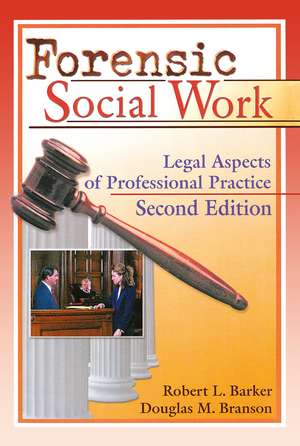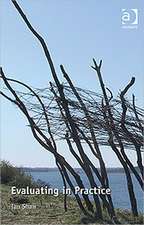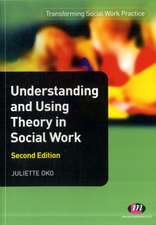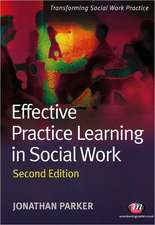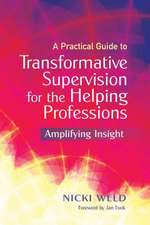Forensic Social Work: Legal Aspects of Professional Practice, Second Edition
Autor Robert L. Barker, Douglas M. Bransonen Limba Engleză Hardback – 17 dec 1999
Forensic Social Work: Legal Aspects of Professional Practice, Second Edition examines the professional specialty of forensic social work which involves testifying in court as an expert witness, investigating cases of possible criminal conduct, and assisting the legal system in such issues as child custody disputes, divorce, child support, juvenile delinquency, spouse or child abuse, and placing individuals in mental hospitals. As a student or professional social worker, you will explore a variety of ethical and legal issues, such as malpractice, licensing, credentialing, marketing for forensic clients, and presenting effective courtroom testimony. Current and fact-filled, this new edition discusses the origins of forensic social work and offers implications for future practice.
New material in this edition includes a chapter on how to establish a forensic social work practice, with information on how to bring in clients, generate new referrals and make other important contacts. Another new chapter expands on the first edition's discussion of implanted memory versus recovered memory and the ways that social workers use and often misuse this information. A third new chapter examines credentialing requirements for forensic social work.
Forensic Social Work details legal conflicts you may face and offers suggestions on how to deal with these situations. Rich with examples, some aspects of forensic social work that you will learn about are:
- separating the role of the expert witness from the role of the fact witness while testifying
- understanding the motivations, payments, and positive incentives for entering the field of forensic social work
- avoiding malpractice lawsuits by understanding the criteria for liability
- guidelines for action when laws and ethics collide
- preparing for litigation
- duty-to-warn laws
- writing reports and contracts for the litigious society using the problem-oriented (SOAP) record
- distinguishing implanted memory from recovered memory and understanding how witnesses and social workersmay misuse remembered information
| Toate formatele și edițiile | Preț | Express |
|---|---|---|
| Paperback (1) | 228.65 lei 6-8 săpt. | |
| Taylor & Francis – 9 dec 1999 | 228.65 lei 6-8 săpt. | |
| Hardback (1) | 1098.50 lei 6-8 săpt. | |
| Taylor & Francis – 17 dec 1999 | 1098.50 lei 6-8 săpt. |
Preț: 1098.50 lei
Preț vechi: 1156.31 lei
-5% Nou
Puncte Express: 1648
Preț estimativ în valută:
210.19€ • 220.05$ • 173.92£
210.19€ • 220.05$ • 173.92£
Carte tipărită la comandă
Livrare economică 05-19 aprilie
Preluare comenzi: 021 569.72.76
Specificații
ISBN-13: 9780789008671
ISBN-10: 078900867X
Pagini: 274
Ilustrații: black & white illustrations
Dimensiuni: 152 x 229 x 24 mm
Greutate: 0.52 kg
Ediția:2nd edition
Editura: Taylor & Francis
Colecția Routledge
Locul publicării:Oxford, United Kingdom
ISBN-10: 078900867X
Pagini: 274
Ilustrații: black & white illustrations
Dimensiuni: 152 x 229 x 24 mm
Greutate: 0.52 kg
Ediția:2nd edition
Editura: Taylor & Francis
Colecția Routledge
Locul publicării:Oxford, United Kingdom
Cuprins
Contents
- Preface and Acknowledgments
- Chapter 1. Forensic Social Work in a Litigious Society
- The Purpose of Forensic Social Work
- Law in the Origins of Social Work
- Early Affinity of Social Work and the Law
- Divergence Between Social Work and the Law
- Growth of the Litigious Society
- Social Work's Renewed Interest
- What Social Workers Must Know About the Law
- The Emergence of Forensic Social Work
- Chapter 2. The Practice of Forensic Social Work
- What Do Forensic Social Workers Do?
- Motivations for Forensic Social Workers
- Payment for Forensics Experts
- Positive Incentives
- Forensic Social Work As a Part-Time Occupation
- Steps Toward A Forensics Specialty
- How Expert Witnesses Become Established
- Referral-Building Activities
- Forensic Marketing Organizations
- Forensic Professional Groups
- Forensic Experts in Related Fields
- National Organization of Forensic Social Workers
- Conclusion
- Chapter 3. Testifying in Courtrooms
- Types of Courtroom Witnesses
- Roles of the Social Work Fact Witness
- Distinguishing Fact and Expert Witness
- The Subpoena
- Presenting Testimony Effectively
- Responding to Direct Examination
- Responding to Cross-Examination
- Hazards in Presenting Testimony
- Testifying Against Clients
- The Testimony of Children
- Recovered or Implanted Memory
- Ten Guidelines for the Effective Witness
- Chapter 4. Testifying As an Expert Witness
- Pretrial Negotiations
- Negotiating Payment
- Preparation As an Expert Witness
- Rehearsing Expert Testimony
- Voir Dire: Qualifying As an Expert
- Presenting Expert Testimony
- Direct Examination of the Expert
- Cross-Examination of Expert Witnesses
- Tactics to Impeach Expert Witnesses
- Conclusion
- Chapter 5. Malpractice and How To Avoid It
- Some Malpractice Examples
- Responsibility for Therapy Outcomes
- Alleged Child Abuse: To Report or Not?
- The Ramona (ital.) Case
- Criteria for Malpractice Liability
- Preventive and Defensive Practices
- Conduct Leading to Malpractice Claims
- Chapter 6. When Laws and Ethics Collide
- The Limits of Confidentiality
- Child Abuse and Neglect Laws
- The Tarasoff (ital.) Case
- Rationale of Judges and Legal Officials
- Guidelines for Coping
- Implementing the Actual Warning
- Jaffee vs. Redmond (ital.)
- Conclusion
- Chapter 7. Preparing for Litigation
- Recognizing a Potential Legal Hazard
- The Emotional Risks of Litigation
- When to Seek Legal Help
- Costs of Litigation
- Goals in Hiring a Lawyer
- Trial or Settlement?
- Chapter 8. Professional Review: Judgment by Colleagues
- Need for Alternatives to Law Courts
- Philosophies of Reviewing Organizations
- Types of Sanctions
- Disciplinary Action Reporting System (DARS)
- Third-Party Review Procedures
- NASW Peer Review Procedure
- Critique of NASW Adjudication Procedures
- Other Professional Review Procedures
- Inevitability of Peer Review
- How To Avoid or Minimize Sanctions
- When Misconduct Is Acknowledged
- Chapter 9. Case Recording and Written Contracts
- Report Writing for the Litigious Society
- Record Keeping for Couples and Families
- The Problem-Oriented (SOAP) Record
- Accessibility of Case Records
- Forensics Reports versus Case Records
- The Written Contract
- Written versus Verbal Contracts
- The Preservation of Contracts and Records
- Conclusion
- Chapter 10. Legal and Professional Credentials
- Practicing Without Credentials
- Consequences of Misrepresentation
- What Are Credentials?
- Origins of Social Work Credentials
- Requirements for Professional Credentials
- Social Work Licensure
- Comparing Credentials with Other Professions
- Unresolved Credentialing Problems
- The AASSWB Model Social Wo
Notă biografică
Robert L. Barker, Douglas M. Branson
Descriere
This book explores forensic social work and offers examples of legal conflicts practitioners may face in their practice. Discussing the origins of forensic social work and implications for future practice, the new edition of Forensic Social Work will help you offer better services to clients as it explores malpractice, licensing, credentialing, marketing for forensic clients, and presenting effective courtroom testimony.
To view an excerpt online, find the book in our QuickSearch catalog at www.HaworthPress.com.
To view an excerpt online, find the book in our QuickSearch catalog at www.HaworthPress.com.
